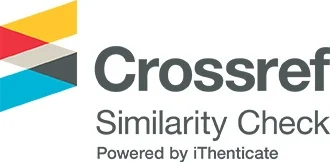GENETIC MARKERS FOR HEALTHY MILK PRODUCTION
DOI:
https://doi.org/10.65137/jhas.v1i2.35الكلمات المفتاحية:
gene، polymorphism، productivity، POU1F1، K-CSN، PRLR، Frisian breedالملخص
The development of DNA-based technologies, within the concept of selection marker gene, allows animals to evaluate the allelic variants of genes that are directly or indirectly related to production traits. Development and function of mammary is controlled mainly by growth hormone and prolactin, which are secreted by the anterior pituitary. The article presents the results of studies of the effect gene polymorphism pituitary transcription factor (POU1F1), kappa-casein gene (k-CSN) and prolactin gene (PRL) on milk production of cows of Frisian breed. Analysis of the genotypes was performed by PCR-RFLP (polymerase chain reaction–restriction fragment length polymorphism). It contains information describing how to conduct research and reagent kits for each of the genes studied. POU1F1 gene controls the transcription of genes PRL, TSH and GH, as well as the functioning of the breast. Mutations kappa-casein gene (k-CSN) affect the protein content in milk, cheese yield and cheese as well as on the coagulation properties of milk. All this makes the consideration of these three genes (POU1F1, k-CSN, PRL) as a promising candidate genes dairy cattle productivity. As a result of studies have shown the presence of two populations of allelic variants of each gene and all three variants of genotypes. As a result of molecular genetic studies have investigated the genetic structure of Frisian breed and established three genotypes AA, AB and BB. The population was in Hardy-Weinberg equilibrium.
Animals genotype BB (POU1F1) characterized by the best milk yield per lactation (500.5 kg at (P <0,01) and 835.6 kg (P <0,001) compared with genotypes AB and BB, respectively), and genotype AB (POU1F1) was significantly associated with higher protein content. Genotype AB gene k-CSN provides higher performance milking (at 572.7 kg (P<0,05) compared with the AA genotype), whereas the effect of polymorphism of the gene for the protein and fat content in milk has not been established . PRL gene revealed that the animals of AA genotype have better milk yield per lactation. Superiority over similar genotype AG amounted to 388.2 kg and above analogy with the GG genotype at 564.1 kg (P<0,05).






